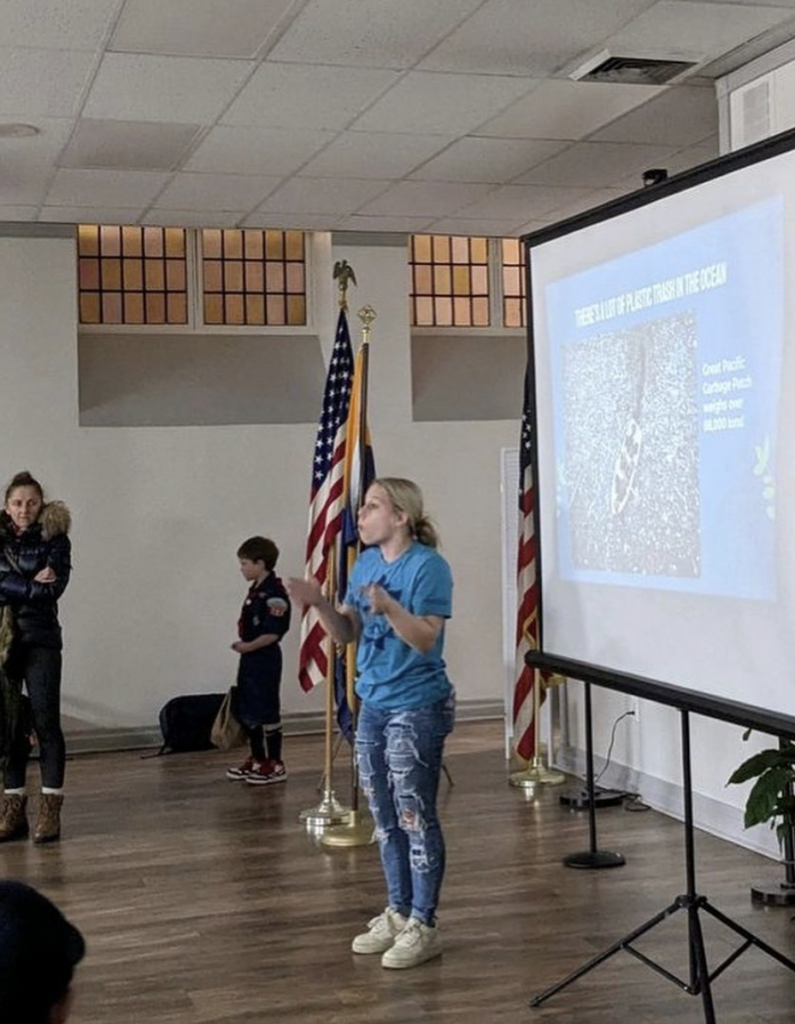Members of the Georgetown Renewable Energy and Environmental Network (GREEN) raised awareness for plastic pollution through outreach at a local Cub Scout meeting Jan. 18.
A student advocacy club that promotes environmental preservation, GREEN is the largest environmental club on Georgetown’s campus. Through initiatives like removing invasive species, running beekeeping classes, offering students opportunities to compost waste and organizing advocacy both on and off campus, GREEN seeks to raise awareness of environmental issues and decrease students’ and Georgetown’s carbon footprints.
Single-use plastics, such as plastic straws, grocery bags and candy wrappers, contribute up to 213 million metric tons of greenhouse gas emissions each year, according to the University of Colorado Boulder Environmental Center. If consumption trends continue, plastics will account for 20% of all oil consumption by 2050, according to a Center for International Environmental Law report.
The Washington, D.C. government has worked to decrease plastic use in the district, becoming the first municipality in the nation to enact a five-cent tax for disposable plastic bags in 2009 and banning single-use plastic straws in 2020.
Theology adjunct professor in the College of Arts and Sciences Bulbul Tiwari, who teaches classes on religion’s interplay with climate change, connected GREEN with Pack 100, a local Cub Scout troop in which her children are involved, after finding out about GREEN’s efforts through a student.
Tiwari said that she put GREEN into contact with the troop because she believes there needs to be more environmental and climate change education taught in schools.
“I am grateful to GREEN for taking the time to educate young children about caring for their planet and their future,” Tiwari wrote in an email. “I was impressed with their dedication, flexibility and enthusiasm.”

GREEN members showed a crowd of 50 scouts from the ages of 6 to 10 years old how to make crafts from upcycled plastic water bottles during their visit, presenting to scout members the dangers of microplastics and ocean pollution before showing them how to upcycle plastic water bottles into piggy banks.
Katelyn Rickert (CAS ‘24), who runs GREEN’s education branch with Jialan Deal (SFS ’24), said GREEN aimed to show scout members that single-use plastics can be reused and turned into new, creative things.
“It is important to educate people about single-use plastics because plastics have harmful effects on land and water. Many plastics break down into microplastics and pollute waterways, harming sea life and human life as well,” Rickert wrote to The Hoya. “Environmental education is very important because people can’t change their actions for the better until they understand how their actions change the environment.”
Rickert added that environmental science is not typically taught to students at any level, making environmental education particularly crucial for elementary school-aged students.
“It’s so important we teach children when they are young so they can form good habits they can carry on into the future,” Rickert wrote.
Deal and Rickert run GREEN’s education branch with the aim of increasing environmental conservation knowledge within the club and the greater Georgetown community. GREEN had hoped to work with local schools, but COVID concerns limited their ability to do so, according to Rickert.
“We contacted many schools in the area to do environmental education, but all of the schools had COVID concerns which prevented us from teaching the kids,” Rickert wrote. “We hope that this year schools will be more willing to invite us in to do some environmental lessons!”
Deal said that while GREEN wants to continue growing its educational programming with youth, their programs are not yet fully formalized.
“While we would like to work with more local schools, it’s not really a full-blown program as of yet,” Deal wrote to The Hoya.
Rickert said it felt rewarding to see kids learning about an important topic through creative methods that made learning fun.
“Our goal was to educate children on some environmental issues in the world and things they can do to take action,” Rickert wrote. “The kids loved learning and making the craft, which was really fun to see.”




















